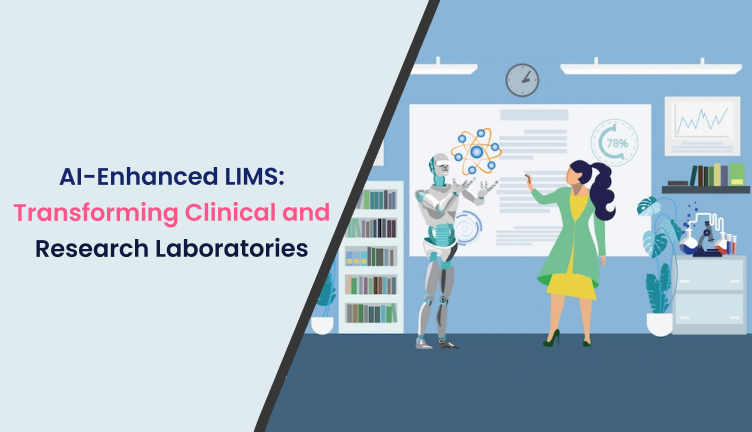Introduction:
AI-integrated LIMS is becoming a reality in today’s fast-moving world causing a revolutionary change in the clinical as well as research laboratories. Laboratory Information Management System and Pathology Lab Software are funneling advanced artificial intelligence technologies to manage processes, increase efficiency, and simplify data management. This is how they are making the concept of LIMS in healthcare a necessity particularly to foster special and greater improvements in the industry.
Understanding AI-Enhanced LIMS
The use of Artificial Intelligence in Laboratory Information Management Systems (LIMS) has marked itself as a quantum leap forward in the field of laboratory information management. With the incorporation of advanced AI solutions, these systems optimize effectiveness, and precision, and enhance the understanding of the data.
These comprise integrated data digitization, business intelligence, and Pathology Lab Software compatibility that improves the lab’s performance and accuracy of diagnoses. Thus it has become imperative to incorporate AI-enhanced LIMS in the healthcare system, which holds enormous benefits concerning several lab processes like sample tracking & result validation. Also, integrating these systems is compatible with Hospital Management Systems (HMS) providing a harmonized and efficient healthcare provision.
Thus, the integration of AI and LIMS in healthcare is amazing as it speeds up the developments in diagnostics and research. Future advancements in AI technologies are inevitable and will take the use of this distinct solution to various layers deep into LIMS while reshaping the laboratories’ operations and healthcare services.
Benefits of AI-Enhanced LIMS
AI-enabled LIMS are quickly changing the face of laboratories with a special focus on the healthcare kind. Here are some key benefits: Here are some key benefits:
These can be categorized under the key areas of improved data accuracy and management.
There is an ability to search for errors in data entry and correct them with the help of AI, which means minimization of human errors. Thus assuring data quality guarantees that all information processed within LIMS Play In Healthcare facility is accurate and comprehensive to support the safety of patients as well as research validity.
Enhanced Operational Efficiency
Intelligent LIMS are characterized by integrating advanced technologies such as artificial intelligence to support and manage laboratory processes including tracking and entering data, and report creation. Automation achieves this by conserving a lot of time for the lab personnel, which in turn enhances productivity.
Predictive Analytics and Insights
In this aspect, LIMS can use the outcomes of Artificial Intelligence to pattern bigger datasets and even prognosis future behavioral trends. This is especially true in research where predictive analytics can make incredible discoveries about the human world. In clinical laboratories, it can enhance the patient’s quality of life by anticipating the occurrence of epidemics or the effectiveness of treatments.
Also, it flows smoothly into EMR/EHR systems.
Automated LIMS can without a lot of difficulties interface with EMR and EHR, so they can avoid gaps in data sharing between laboratories and physicians. This integration improves the general flow of healthcare delivery as it provides complete patient information to the clinician.
Improved Telephone and Faxing Interconnectivity
Modern AI-based LIMS enhance collaboration and data exchange processes among healthcare workers and researchers. They make it possible for employees within those systems to work in a coordinated manner toward the provision of patient care and innovations in scientific research.
Conclusion:
Integrating modern technology such as AI in their LIMS systems; clinical and research laboratories are being transformed and taken to another level of precision, productivity, and creativity. The implementation of AI in LIMS functionality offers these systems efficiency within the practice’s operational process, data management, and diagnostics. Thus, AI-integrated LIMS will remain a critical factor in the development of medical science and patients’ treatment, setting unattainable standards in laboratory management.

